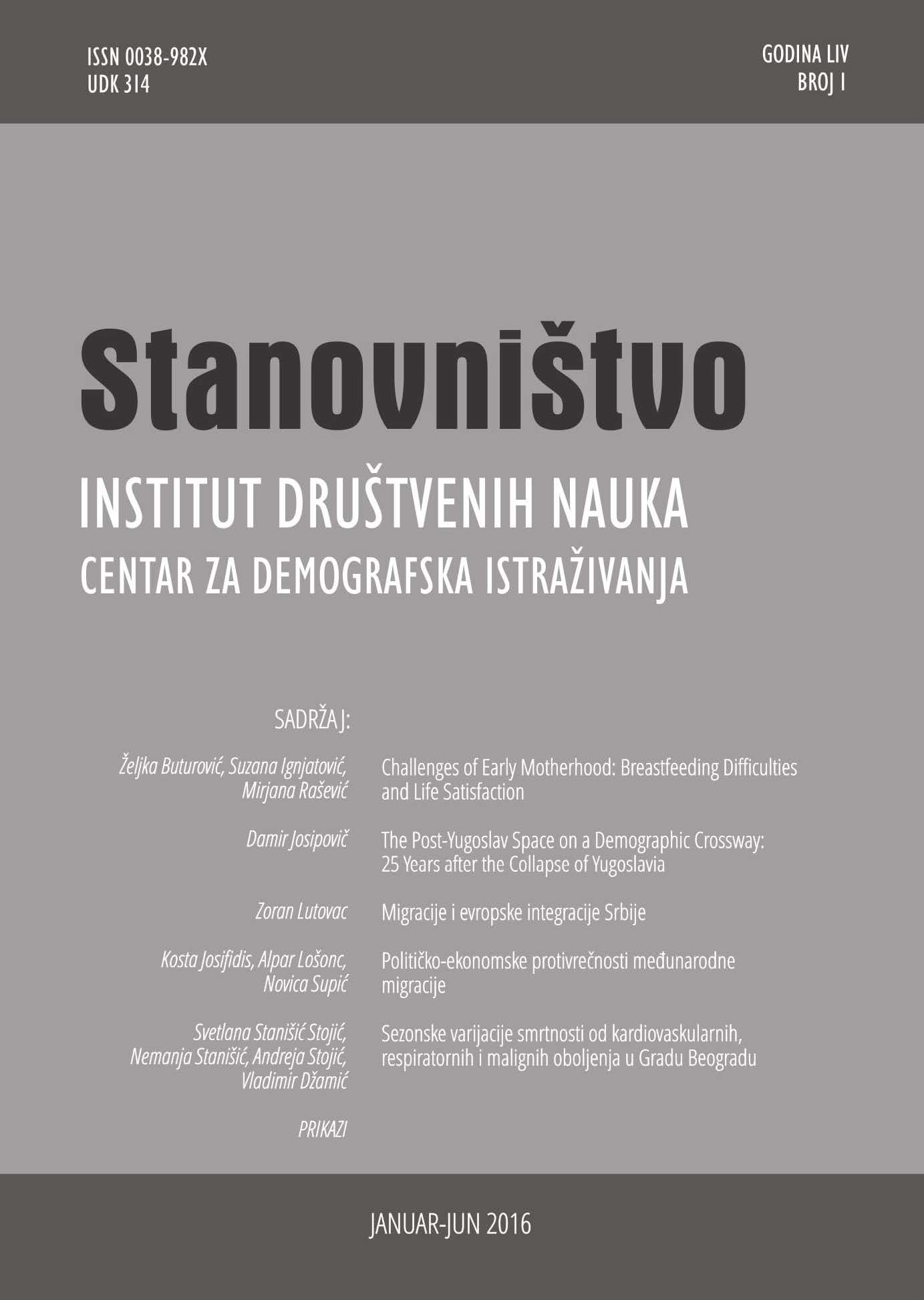Političko-ekonomske protivrečnosti medjunarodne migracije
Contradictions of International Migration in Terms of Political Economy
Author(s): Kosta Josifidis, Alpar Lošonc, Novica SupicSubject(s): Political economy, Migration Studies, Inter-Ethnic Relations
Published by: Институт друштвених наука
Keywords: international migration; neoliberalism; political economy of migration; labor force; authoritative etatism
Summary/Abstract: The political economy approach that entails critical arguments in relation to the processes of migration in neoliberal terms is developed in the paper. Starting with the account that migration covers as broad issues as politics, economics and population dynamic, the authors address the issue of migration in the political economy circuits of neoliberalization. In fact, the main line of argument is connected to the political economy as the relevant discursive frame and explanatory principle for the articulation of the complexity of migration. Critical arguments relating to the processes of migration in the neoliberal context thematize the mechanism of implemented flexibilisation and deregulation of labor. Demographic dynamics is essential in this context, but the authors intend to identify those political economy processes that lead to high precariousness, to various forms of temporary labor which are closely associated with forced labor forms. The category of forced labor is emphasized in the contemporary forms of migration, because this mode of labor facilitates the migration throughout the world. Furthermore, the authors point out the contradictory position of the state in relation to the migration-processes and analyse the authoritarian statism. This argumentation leads to articulation of the contradictory position of neolibe-ralization. The neoliberal discourses bring out the critical stance concerning the supremacy of the state, but it plays a key role in the regulation of migration. The state exposed to migration is faced with the contradictory demands. The globalization indicates the world without borders but is faced with the same contradictions. It is no coincidence that the intention of the reconceptualizations of globalization are interested in promoting global public goods. The processes of privatization in the sphere of the regulation of migration sharpen the contradictions of migration in the context of neoliberalization. The political economy approach is faced with the tension between the two approaches. The first proposed regulation and workforce management at the supranational level. The other remains in the framework of “methodological nationalism”: the appropriate starting point is the national state. Given the fact that structural inequalities should be recognized at a global level, and that processes of migration show that there is a certain hierarchical global flow in the context of the dynamics of workforce, the first approach proves to be inadequate. In other words, the second approach could not articulate the relevant tendencies. Accordingly, the political economy approach that intends to include complex determination regarding the migration should integrate the national trends in the supranational framework. But, proper research should take into account that globalization and its complex order consist of a number of interventions and interferences. This means that the aforementioned approach must develop sufficiently complex methodology in order to articulate its selected subject.
Journal: Stanovništvo
- Issue Year: 54/2016
- Issue No: 1
- Page Range: 65-82
- Page Count: 18
- Language: Serbian

